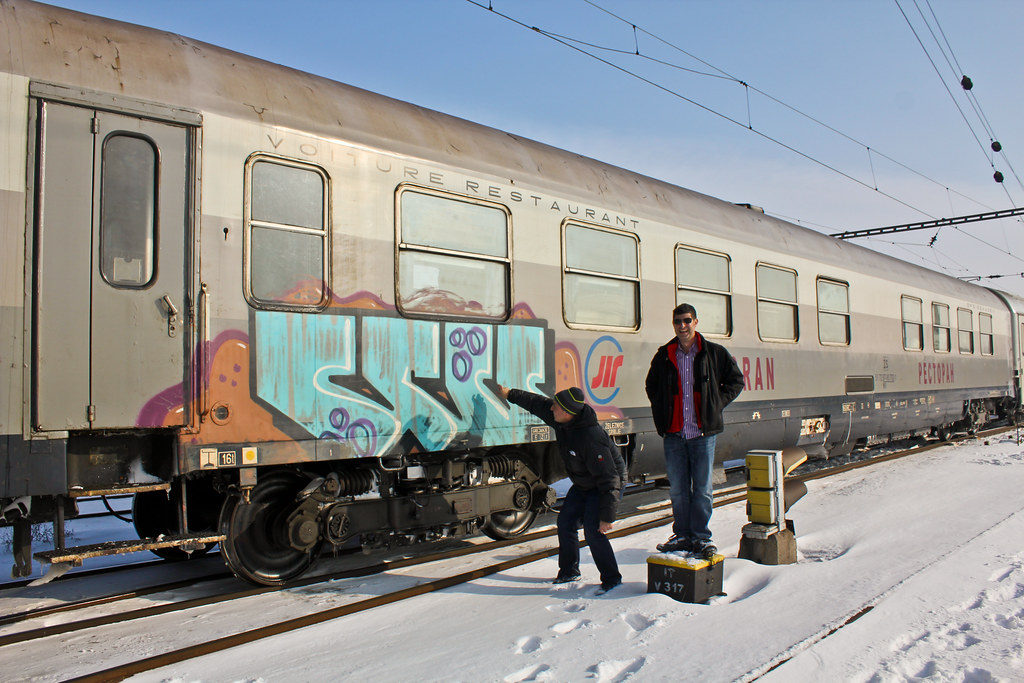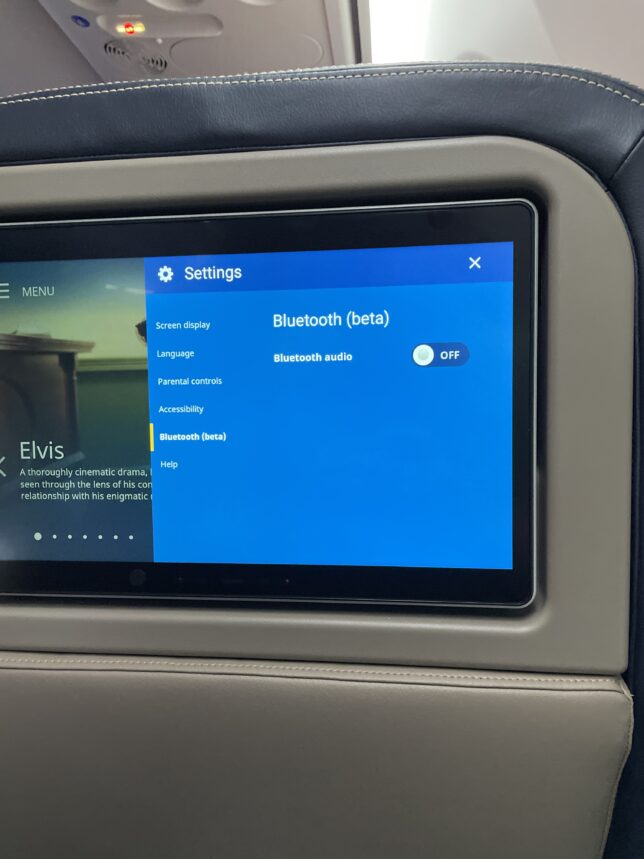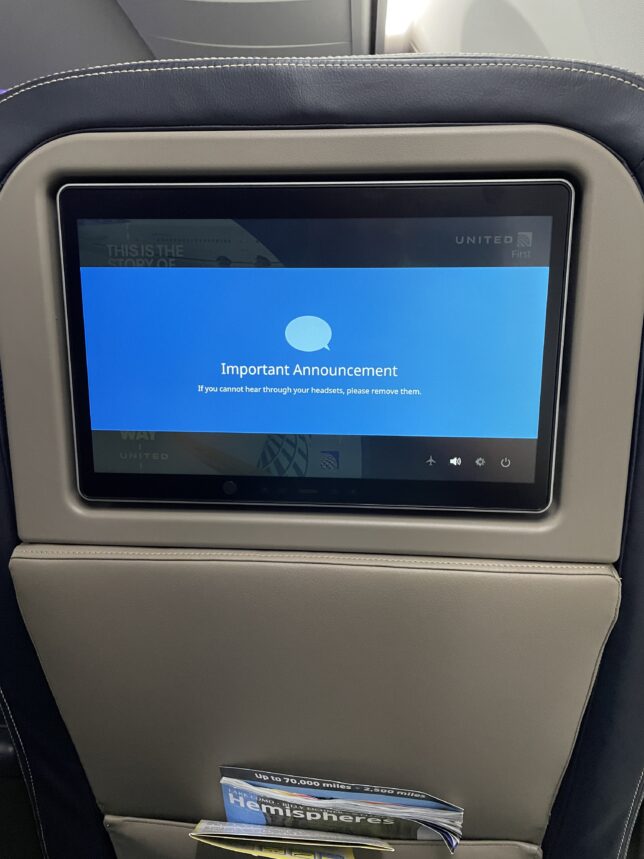No, it isn’t just you, the way movies are scored and mixed has changed and this video from Vox breaks down how and why. Due to an ear infection I wrote about a while back, hearing in my left ear has not been 100% so I definitely noticed hushed movies where the dialog is hard to hear and follow.
Time for a new suitcase?
My Rimowa suitcase, basically an older version of the Essential Cabin model, experienced a bit of an issue during my return from London and the seam around part of the zipper gave out. I have taken it to a repair shop but they seemed pessimistic about being able to fully repair the break. The Rimowa had a good 11-year run. As such, I have started the search for a replacement.
I tend to prefer the clamshell style suitcases where when opened, there are two sides where items can be stored and not just a lid opening into a single storage area. My preference comes from having the ability to separate my clothes out so if I have a long connection somewhere (like Singapore on a recent San Francisco-Singapore-Bangalore trip) I can have items readily available rather than digging through the entire suitcase. I do like Rimowa and with their recent change to include a lifetime guarantee for all suitcases purchased after July 25, 2022, they are an even more compelling option. However, I am open to suggestions; So here’s a quick list of things I am looking for:
- Four-wheel spinner. It’s nice to have a suitcase I can walk beside or manipulate in tight spaces.
- Nice wheels. High quality wheels that are smooth and don’t need to be replaced often.
- Clamshell design, for reasons stated earlier.
- Quality. I know there are cheap suitcases out there, but I’d rather have one for a long time.
- I lean toward hard-sided suitcases, but I’m open to soft-sided as well.
So, what recommendations do you have? Anything I should definitely avoid?
Bluetooth Audio on Planes is Real and it’s Spectacular
I recently flew on a couple of United’s newer planes in the domestic fleet, a 737 MAX 8 and a MAX 9. The MAX 8, tail number N27267, was delivered to United in August and it still had that new plane smell. It also had United’s new inflight entertainment system, including Bluetooth audio for passengers to use to listen to the movies or television that were watching on their screen. I decided to give it a shot and was pleasantly surprised at how well it worked.
You simply flip the switch for Bluetooth audio and put your device in pairing mode. A few seconds later it is connected and you’re listening wirelessly. For me, the biggest annoyance was that with my Apple Airpods Pro 2 had to be manually set to pair by holding the rear button, essentially wiping out the pairing information with my phone. I am not sure if this is my error or a flaw in how the Airpods pair but it was a small inconvenience.
The audio quality while enjoyable was not high quality. It actually didn’t sound any better than simply plugging wired headphones in. There was a slight static in the background and for scenes with music, it was definitely missing some bass. Part of me thinks this is a result of how the content on these systems is stored, likely highly compressed to save space. It could also be simply an interference issue. With Bluetooth being at every seat, that’s a lot of potential radio interference very close to you. Again, this wasn’t a huge downside for me. Being able to use hardware I already use everyday means I can carry less and it just worked. I’m really glad I got the chance to try it out!
One interesting quirk is that they can’t pipe PA announcements over Bluetooth and specifically ask you to remove the headphones when an announcement comes on.
Have you had a chance to try Bluetooth on United or another carrier? What was your experience like?
O-Chem? More like No-Chem
Stephanie Saul for the NY Times:
Students said the high-stakes course — notorious for ending many a dream of medical school — was too hard, blaming Dr. Jones for their poor test scores.
The professor defended his standards. But just before the start of the fall semester, university deans terminated Dr. Jones’s contract.
N.Y.U. is evaluating so-called stumble courses — those in which a higher percentage of students get D’s and F’s, said John Beckman, a spokesman for the university.
“Organic chemistry has historically been one of those courses,” Mr. Beckman said. “Do these courses really need to be punitive in order to be rigorous?”
I’m sorry, what? Later on in the article it’s made clear that a large number of students taking Organic Chemistry are working towards going to medical school. Yes, I want O-Chem to be a weed-out course. This professor literally wrote the book on Organic Chemistry. I want the person learning the thing to understand the thing they are learning before they take it out in the real world and apply it (in this case, to someone’s body or medicine). This mentality of a class being too hard has seeped down into high schools and middle schools, with kids receiving passing grades either because a parent complains or because the teacher is tired of defending themselves. The cost though is real, that student that didn’t earn a passing grade doesn’t understand the material and is less likely to succeed when such material is built upon later in their school career.
What’s even worse is the recent opinion piece by Dr. Jessica Calarco in the NY Times:
The N.Y.U. students’ willingness to challenge this kind of pedagogical gatekeeping is a sign of how power dynamics are shifting at colleges and universities in the United States. To some degree, that shift reflects a rising sense of entitlement on the part of students and their parents. But that’s not the only factor at play. Another is the increasing diversity of student bodies, which casts many higher education traditions in a new light. One of those traditions is the weed-out mentality. Courses that are meant to distinguish between serious and unserious students, it has become clear, often do a better job distinguishing between students who have ample resources and those who don’t.
I am sure there are students who do not have ample resources, but is that what actually happened in this particular case? We have no idea. If it did, those students without ample resources approach the professor or teaching assistants to let them know they needed more resources? The op-ed goes on to talk about equity with empathy, which I definitely think is needed in education. If a student is failing but a teacher notices that they are falling asleep in class or knows they have a crazy home life, then yes, empathy should be shown. However, in the case of this professor at NYU, students didn’t approach him one-by-one or even in a group. Nope, they wrote a petition because it’s easy and it avoids an actual discussion.
United Airlines to suspend service to JFK
David Shepardson reporting for Reuters:
United Airlines said on Friday it will suspend service in late October to New York’s John F. Kennedy Airport (JFK).
Earlier this month, United had threatened to take the action if the Federal Aviation Administration (FAA) did not grant the air carrier additional flights.
United has been flying just twice daily to San Francisco and Los Angeles from JFK, the busiest New York-area airport, after resuming service in 2021.
United has not been running a large operation at JFK. In fact, they downsized the aircraft flying the route originally, a heavy business class 767-300ER to a 757-200 with just 16 business class seats. This strikes me as a ploy to try and get the FAA to the negotiating table to expand the number of slots at JFK, something I doubt the agency has any desire to do.
More stories of TSA craziness
Another crazy story about the TSA from The Verge:
Soon, Cooper was joined at her station by a supervisor, followed by an assortment of EMTs and airport police officers. The passenger was dead. She and her family had arrived several hours prior, per the airport’s guidance for international flights, but she died sometime after check-in. Since they had her boarding pass in hand, the distraught family figured that they would still try to get her on the flight. Better that than leave her in a foreign country’s medical system, they figured.
The family might not have known it, but they had run into one of air travel’s many gray areas. Without a formal death certificate, the passenger could not be considered legally dead. And US law obligates airlines to accommodate their ticketed and checked-in passengers, even if they have “a physical or mental impairment that, on a permanent or temporary basis, substantially limits one or more major life activities.” In short: she could still fly. But not before her body got checked for contraband, weapons, or explosives. And since the TSA’s body scanners can only be used on people who can stand up, the corpse would have to be manually patted down.
“We’re just following TSA protocol,” Cooper explained.
You may remember, I posted about another Verge story on the TSA a while back. This most recent story is just a continuation on some of the wild stuff that happens at airport security in the United States.
In this most recent story I can’t decide what is crazier, that a family tried to take a dead relative on a flight (without actually alerting anyone she was dead) or that the TSA was completely fine just patting them down and letting them through the checkpoint. And the article goes on to point out how little TSA agents make, even after many years of service, so you end up with burned out workers who leave and you churn through a new batch. It is as though the TSA does not want it to be a career nor do they want to make the experience any better for passengers or for their employees.
Great beer runs aren’t about the beer
The trailer for a new Apple Films feature called “The Greatest Beer Run Ever” is out now and it looks like it will be a really enjoyable film.
What’s even better is that this based on the entirely true story of John “Chick” Donohue who, as a 26-year old former Marine, decided to take a beer to some of the local neighborhood boys who were deployed in Vietnam. He came up with this idea after the bartender of a the local pub complained about how the anti-war movement in the U.S. was picking up and how it would be perceived by the soldiers and marines fighting.
There’s actually a memoir by Donohue called The Greatest Beer Run Ever: A Memoir of Friendship, Loyalty, and War on Amazon. Or you can read this short synopsis from Task & Purpose or watch this interview with him on “TODAY” from 2020.
Part of the trailer eludes to the central point, the beer isn’t the goal, it’s a means to the goal of friendship and camaraderie. Some of my best memories with friends are the random trips we’d take for a beer in a random country or city, not because we drank beer but because we did it together. From taking someone’s word about a brewpub in Bratislava that actually turned out to be really good to getting stranded on the train to Budapest. All of it was fun and was never about the beer but the friendship.

Anyway, really looking forward to this film and I hope it is as good as the trailer makes it seem. The cast is pretty hard to beat and the story is incredible.
* Links to Amazon are affiliate and I will earn a small commission should you buy something
Two Classes of Travelers
Fascinating write-up about the TSA, PreCheck, and CLEAR by Nilay Patel for The Verge:
This year is the 20th anniversary of the Department of Homeland Security and the TSA, and I think it’s safe to say that nobody enjoys waiting in the airport security line. And in the post-9/11 world, things like PreCheck are the great innovation of the department.
At least according to Dan McCoy, who is the TSA’s chief innovation officer, who told me that PreCheck is “a hallmark government innovation program.”
And the thought that I think sits in the back of the mind for most travelers:
But what do programs like PreCheck and the larger surveillance apparatus that theoretically keep us safe mean for the choices we make? What do we give up to get into the shorter security line, and how comfortable should we be about that?
In response to a question about security versus privacy:
This is definitely a hard one to answer from my part. From the innovation perspective, there is intelligence and analysis in the backend that is doing a lot of this work. We have partnerships with the FBI for those background investigations that you are talking about. If you ask an end user to design the best app, they want it to look slick and be frictionless as far as mobility and application development. That is only until you probe them with, “Well, do you want your data to be secure? Do you want to know that you are not being tracked?” I think that is what I equate the TSA process to. Most of my life, TSA has been the way that we go through the airport.
The interview continues on to talk about face recognition and how CLEAR keeps a database of faces but the TSA has taken a different approach, which is Real ID and the verification of a face matching the ID. If you read the full transcript, which is embedded in the above linked article, McCoy mentions that the TSA understands machine recognition of facial data is getting better but it is not at a point where they feel comfortable rolling it out en masse.
Dan McCoy does dance around a few questions, in particular the one around there being only a single attempt to bring a plane down with a shoe bomb but non-PreCheck travelers still have to take their shoes off at security. He gives some pure marketing speak in response to the question and doesn’t give a solid reply as to why the shoe rule is still in place.
My feelings on PreCheck and the rest of the traveling public is that we really should be working to move travel to PreCheck for the majority of passengers and extra security when needed. This is especially true now that travel has picked back up while security remains relatively understaffed. Unfortunately I feel that we’ve crossed an invisible line in the sand and security will never go back to anything like it was pre-9/11. The TSA should really be looking at a future where they can vet passengers quickly and correctly while at the same time insuring that the entire experience isn’t a mess.
Airlines are struggling
From CrankyFlier:
I’ve tried to think of the best way put this into context, so let me put it this way. Across these 9 airlines, 3.1% of flights have been canceled from June 1 – 27. If we look at June 2019, the rate was 2.02%. That doesn’t sound like a lot, so let’s make it more tangible.
These nine airlines canceled 18,508 flights in the first 27 days of June. If they had “only” canceled 2.02% of flights as they did in June 2019, then 13,120 flights would have been canceled. In other words, the airlines have canceled more than 40 percent more flights this June simply because they couldn’t run an operation as well as they did in June 2019. And “well” was already a misnomer back then.
Not good enough? Ok. Assume each canceled flight averaged 100 people on board, probably a conservative number. That means that for the first three weeks of June, more than half a million more people were on canceled flights this year than if they had performed at 2019 levels.
Basically, if you’re traveling this summer, be prepared for delays, cancellations, and an overall headache. Also, have a backup plan.
U.S. ends negative Covid test for international arrivals
From the State Department:
The CDC order from December 2, 2021, requiring persons aged two and above to show a negative COVID-19 test result or documentation of recovery from COVID-19 before boarding a flight to the United States, is rescinded, effective June 12, 2022, at 12:01AM ET. This means that starting at 12:01AM ET on June 12, 2022, air passengers will not need to get tested and show a negative COVID-19 test result or show documentation of recovery from COVID-19 prior to boarding a flight to the United States regardless of vaccination status or citizenship. Of note, CDC’s Order requiring proof of vaccination for non-citizen nonimmigrants to travel to the United States is still in effect.
One of the last big Covid-19 travel restrictions in the United States disappeared today. Proof of vaccination for some is still required.
An interesting addition by spokespeople for the Whitehouse is that this order could be reinstated if necessary due to new variants. I would love to know the criteria for doing so and how that would actually work. Would the administration just stop inbound arrivals until airlines could get their systems for checking tests back into place?


